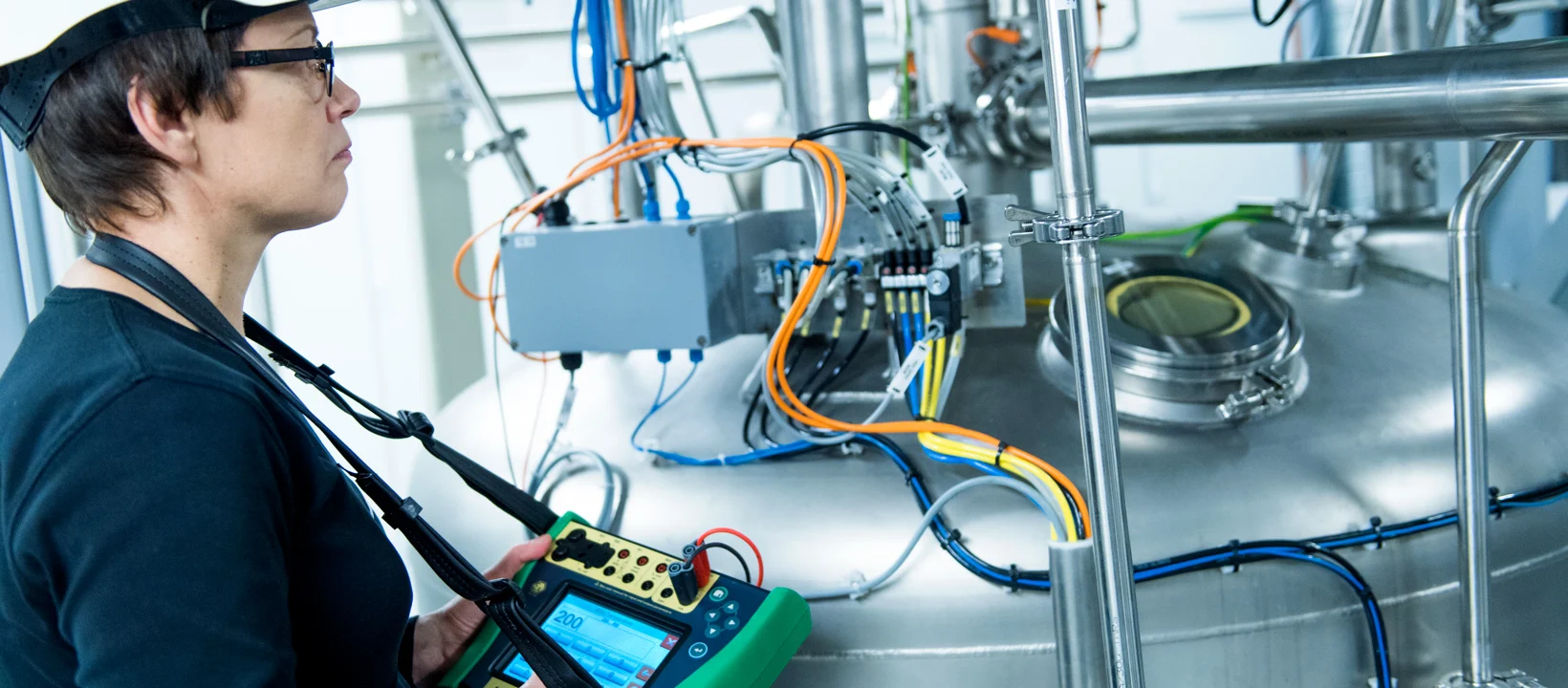Course Details
Your Growth, Our Mission

Course Description
The good and advance laboratory instrumentation can motivate dispirited teams of chemists and technicians to accomplish high quality work. It is very important for lab staff to learn how to create the success in their lab. This course designed to provide an theoretical and practical application of instrumental chemistry in the laboratory. It is designed also to understand concepts of principle of maintenance, repairs and calibration, how to develop technical, and methods in lab and how to evaluate the lab results.
The Training Course Will Highlight ?
Training Objective
Target Audience
This course is for individuals who are involved in standards and calibration laboratories and for others who want a clear understanding of the special requirements that must be met by managers and other personnel in standards and calibration work.
Training Methods
This interactive Training will be highly interactive, with opportunities to advance your opinions and ideas and will include;
- Lectures
- Workshop & Work Presentation
- Case Studies and Practical Exercise
- Videos and General Discussions
Daily Agenda
Day 1
- Introduction
- Historical and review
- Analytical Chemistry and Chemical Analysis
- Type of Chemical Analysis Methods
- Classical Methods
- Instrumental Methods
- Instrumental analysis in laboratory
- Basic Principle and theory of Instrumental Analysis
- Rules for operation laboratory instruments
- Spectroscopic Instrumental Analysis
- Molecular Spectroscopy analysis
- UV-Vis spectroscopy
- FTIR Spectroscopy
- Atomic Spectroscopy analysis
- X-ray analysis (XRF-XRD)
- Atomic Absorption Spectrometry (AAS)
- Atomic Emission Spectrometry (AES)
- Inductively Coupled Plasma (ICP)
Day 2
- Separation Instrument Analysis
- Gas Chromatography
- High Performance Liquid Chromatography
- Ion Chromatography
- Electrochemical Instrument analysis
- pH meter
- Conductivity meter
- DO meter
- KF water analysis
- Computerized Systems, Good Automated Laboratory Practices
- Choosing the Right Instrument
- Comparing Instrumental Techniques
- Comparing Online Analyzers and Laboratory Instruments
- How to prepare tender for new instrument and consumable
- FAT Factory Acceptance Test & SAT Site Acceptance Test
Day 3
- Chemical laboratory measurement evolution
- Reporting results
- Significant Figure Rules
- Laboratory Certification
- The Evaluation of Results and Methods
- Instrumentals Calibration, and Standardization
- History of Calibration Requirements
- Instruments Calibration and Traceability
- Standard Reference Materials
- Methodologies for a Calibration Program
- Standard calibration
- Internal Standard calibration
- External Standard calibration
- Correction of errors and improving blank
- Correlation Coefficient & Residual analysis in regression
- Quality / Calibration Manual
- Calibration work instructions, procedures, certificate, and documentation
- Calibration Reports, and Records Requirements
Day 4
- Measurement Uncertainly in testing and calibration
- Type of errors in instrumental analysis
- Systematic, Random, and Gross errors
- Correction of errors and improving accuracy
- Precision Equipment Handling
- Maintenance and troubleshooting in instrumental analysis
- Routine & Preventive Maintenance
- Troubleshooting, Corrective and Preventive Action
- How to used LIMS in improvement laboratory instrument
- Establishing the traceability of measurements
- Measurement Uncertainly in testing and calibration
- Estimation of Measurement Uncertainty
- Standard Uncertainty
- Expanded Uncertainty
Day 5
- Characteristic of Method validation in Instrumental Analysis
- Specificity
- Linearity
- Range
- Accuracy & Precision
- Robustness
- Reputability, Reducibility
- Detection Limit (IDL, LOD, LOQ, LOL, ….)
- Statistical Process Control (SPC)
- Check Standards in SPC
- Control Chart for QC
- Application for Data Evaluation
- Inter-Laboratory Comparison (ILC)
- Practical exercises for Inter-Laboratory Proficiency Testing
- Confidence Levels
- Practical training on handling laboratory instruments
- Practical exercises for Uncertainty & Control Chart
Accreditation
BTS attendance certificate will be issued to all attendees completing a minimum of 80% of the total course duration.
Quick Enquiry
Request Info
Related Courses
Your Growth, Our Mission

